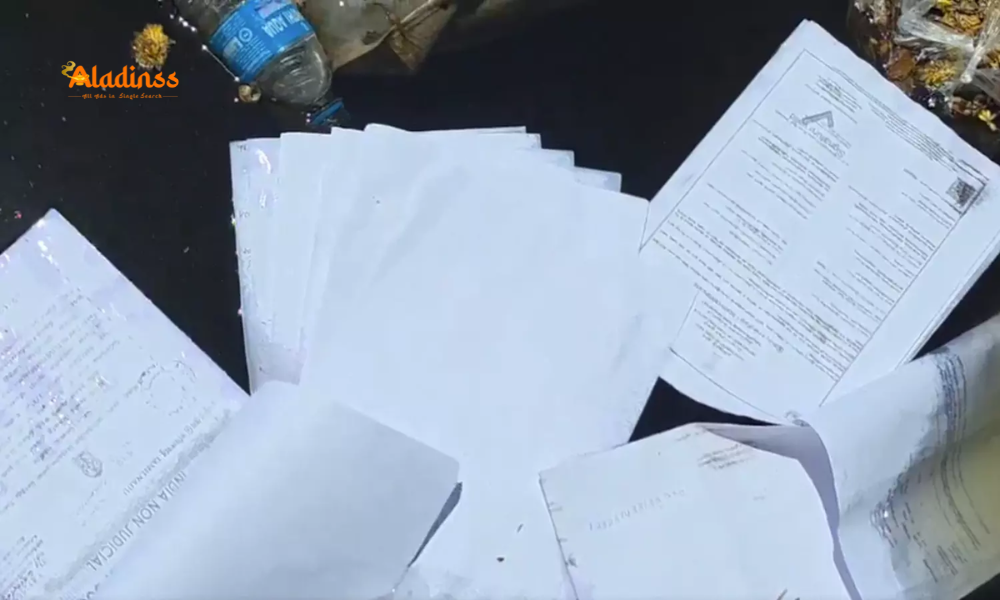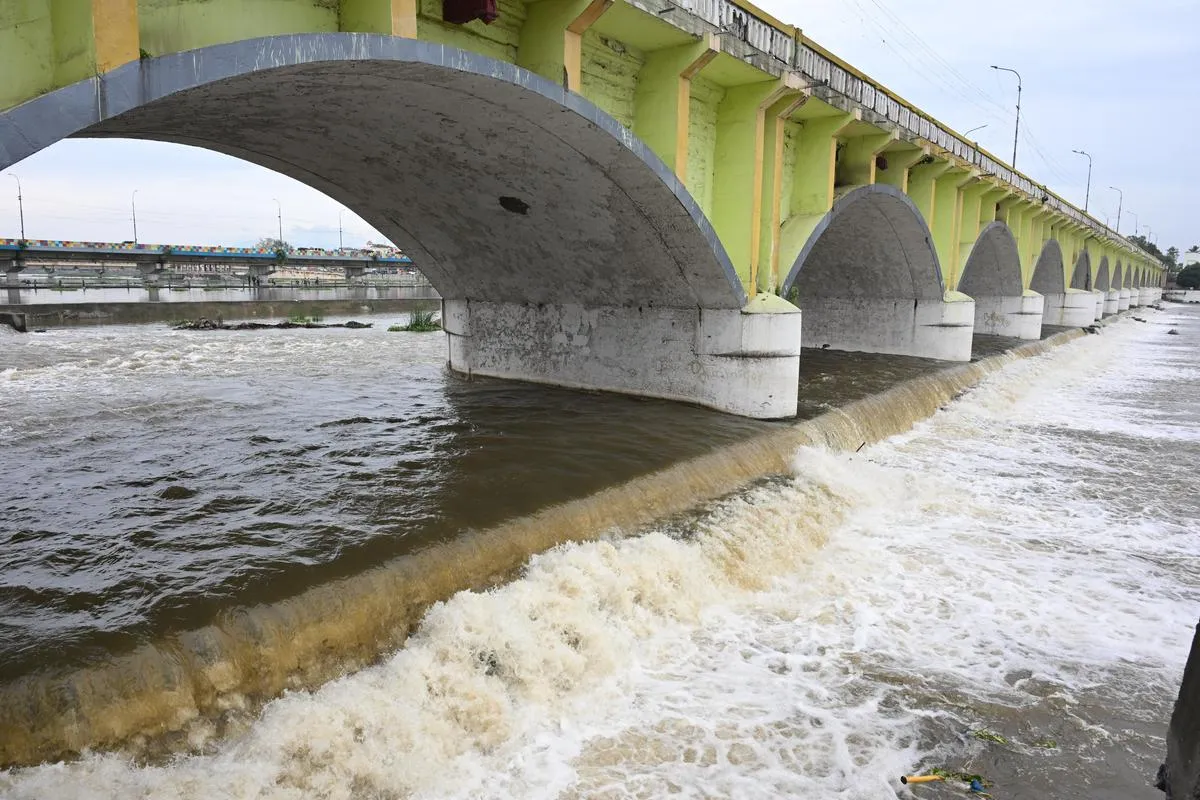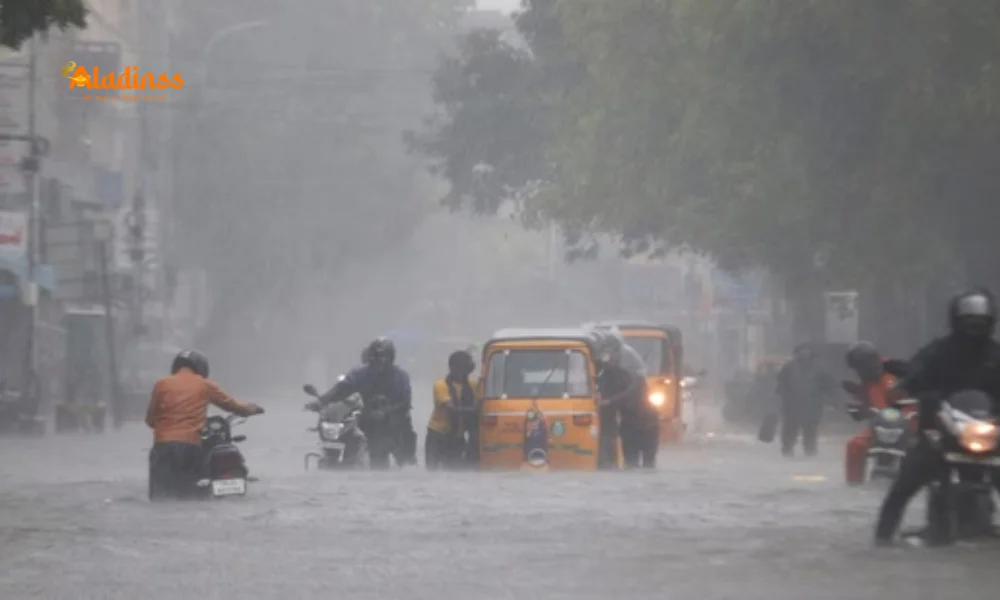Vaigai River Petition Scandal: Collector Orders Probe, HC Seeks Report

District Collector Orders Probe on Petitions Floating in Vaigai River, Madras High Court Seeks Report

The incident of petitions submitted by the public at Chief Minister Stalin’s grievance camp being found floating in the Vaigai River in Sivaganga district has created shockwaves across Tamil Nadu. Opposition leader Edappadi Palaniswami strongly condemned the act, terming it as a betrayal of public trust. Following the outrage, District Collector Porkodi ordered an immediate inquiry and directed that a case be registered against the officials responsible for discarding the petitions into the river. The issue has now drawn the attention of the Madras High Court (Madurai Bench), which has sought detailed updates from the authorities on the functioning of the district-level committee set up to preserve and rehabilitate the Vaigai River.
Petitions Found Floating: Shock and Political Reactions
The floating of petitions in the river, which were originally submitted by citizens seeking redressal of grievances at Stalin’s special camp, has caused public uproar. The petitions symbolize the voice of ordinary people, and their negligent disposal has been viewed as an insult to democratic accountability. Opposition parties have been quick to criticize the government, with AIADMK leader Edappadi Palaniswami condemning the incident and demanding stern action against those responsible.
District Collector’s Order: Case Against Officials
Responding swiftly to the controversy, District Collector Porkodi directed that a case be registered against the officials responsible for the mishandling of petitions. The Collector further instructed a full-fledged inquiry into how and why the petitions ended up in the Vaigai River at Thiruppuvanam. The inquiry will identify the officers involved, and strict disciplinary and legal action is expected to follow. This move has been welcomed by civic groups, who argue that accountability must be ensured to restore public faith.
Madras High Court Intervention
Meanwhile, the Madurai Bench of the Madras High Court on Wednesday sought details regarding the constitution and functioning of the District Level Preservation and Rehabilitation of Vaigai River Committee. The court emphasized that the District Revenue Officer (DRO), who heads the committee, must appear in person to brief on the steps taken in compliance with a 2020 court order aimed at restoring the river. The directions came during the hearing of a contempt petition filed by M Naga Rajan of Vaigai Nathi Makkal Iyakkam, alleging non-compliance with the earlier order.
The 2020 order had mandated the formation of river monitoring committees in five districts — Madurai, Theni, Dindigul, Sivaganga, and Ramanathapuram — under the leadership of the respective district collectors. These committees were tasked with carrying out physical inspections of the Vaigai River banks and ensuring no sewage or drainage water was discharged into the river. However, the petitioner alleged that authorities have failed to comply, citing a recent report from the Madurai Nature Cultural Foundation (MNCF) that identified 177 discharge points of untreated sewage into the Vaigai.
Public Concerns and Environmental Impact
The issue has sparked wider debate not only on bureaucratic negligence but also on the ecological health of the Vaigai River, which is crucial for drinking water and irrigation in southern Tamil Nadu. Environmental activists warn that untreated sewage discharge combined with administrative lapses such as the mishandling of petitions erodes both the environmental balance and citizen confidence in governance mechanisms.
Next Steps: Court Monitoring and Accountability
The High Court has adjourned the matter to February 6, directing the DRO to report on the committee’s work and the measures taken to restore the river. The court’s intervention has amplified public attention on the issue, and district administrations across the Vaigai basin are now under pressure to demonstrate real progress. The outcome of the inquiry into the petitions floating incident, coupled with judicial oversight of river preservation, is expected to shape administrative accountability in the coming months.
Comment / Reply From
No comments yet. Be the first to comment!











